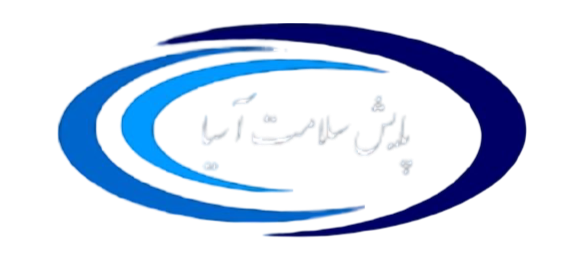- خدمات ما
- صنایع تحت پوشش
- صدور گواهیهای بینالمللی ISO 9001 و ISO 22000
- 🔍 بازرسی کالا های صادراتی و وارداتی و صدور COI
- طرح های ارزیابی انطباق پایش سلامت آسیا
- طرح محصولات معدنی غیر فلزی و مصالح ساختمانی پایش سلامت آسیا
- طرح نساجی و چرم پایش سلامت آسیا
- طرح روغن و چربی های خوراکی پایش سلامت آسیا
- سیستم صنعت غذا و محصولات کشاورزی پایش سلامت آسیا
- طرح مواد شیمیایی پایش سلامت آسیا
- طرح وسایط نیرو محرکه اجزا و قطعات پایش سلامت آسیا
- طرح لوازم الکتریکی و الکترونیکی پایش سلامت آسیا
- طرح ارزیابی انطباق سیستم صنایع نفت و پتروشیمی پایش سلامت آسیا
- طرح کانی های معدنی پایش سلامت آسیا
- طرح ارزیابی انطباق غلات پایش سلامت آسیا
- طرح تجهیزات ورزشی پایش سلامت آسیا
- ارزیابی انطباق مراکز خدماتی
- ارزیابی انطباق هایپرمارکتها و سوپرمارکتها
- ارزیابی انطباق رستورانها و خدمات غذایی
- ارزیابی انطباق هتلها و مراکز اقامتی
- ارزیابی انطباق در حوزه خدمات بیمه
- ارزیابی انطباق در حوزه خدمات مالی و بانکی
- ارزیابی انطباق باشگاههای ورزشی و مراکز تناسب اندام
- ارزیابی انطباق خدمات پس از فروش و تعمیرگاههای خودرو
- سیستم مدیریت کیفیت
- سامانه اموزشی وعلمی
- سیستم مدیریت پروژه و ارتباط با مشتری
- درباره شرکت پایش سلامت آسیا
- فرمهای درخواست خدمات
- تعرفه خدمات
- سامانه مدیریت منابع انسانی
- در خواست شغل
- خدمات ما
- صنایع تحت پوشش
- صدور گواهیهای بینالمللی ISO 9001 و ISO 22000
- 🔍 بازرسی کالا های صادراتی و وارداتی و صدور COI
- طرح های ارزیابی انطباق پایش سلامت آسیا
- طرح محصولات معدنی غیر فلزی و مصالح ساختمانی پایش سلامت آسیا
- طرح نساجی و چرم پایش سلامت آسیا
- طرح روغن و چربی های خوراکی پایش سلامت آسیا
- سیستم صنعت غذا و محصولات کشاورزی پایش سلامت آسیا
- طرح مواد شیمیایی پایش سلامت آسیا
- طرح وسایط نیرو محرکه اجزا و قطعات پایش سلامت آسیا
- طرح لوازم الکتریکی و الکترونیکی پایش سلامت آسیا
- طرح ارزیابی انطباق سیستم صنایع نفت و پتروشیمی پایش سلامت آسیا
- طرح کانی های معدنی پایش سلامت آسیا
- طرح ارزیابی انطباق غلات پایش سلامت آسیا
- طرح تجهیزات ورزشی پایش سلامت آسیا
- ارزیابی انطباق مراکز خدماتی
- ارزیابی انطباق هایپرمارکتها و سوپرمارکتها
- ارزیابی انطباق رستورانها و خدمات غذایی
- ارزیابی انطباق هتلها و مراکز اقامتی
- ارزیابی انطباق در حوزه خدمات بیمه
- ارزیابی انطباق در حوزه خدمات مالی و بانکی
- ارزیابی انطباق باشگاههای ورزشی و مراکز تناسب اندام
- ارزیابی انطباق خدمات پس از فروش و تعمیرگاههای خودرو
- سیستم مدیریت کیفیت
- سامانه اموزشی وعلمی
- سیستم مدیریت پروژه و ارتباط با مشتری
- درباره شرکت پایش سلامت آسیا
- فرمهای درخواست خدمات
- تعرفه خدمات
- سامانه مدیریت منابع انسانی
- در خواست شغل

